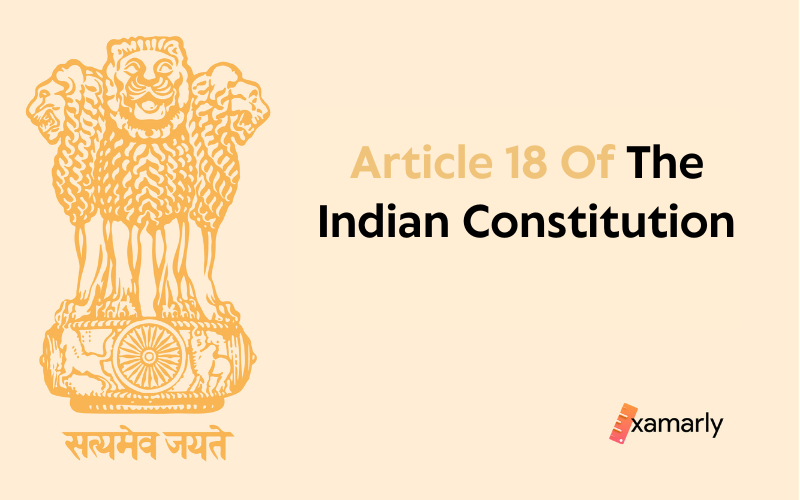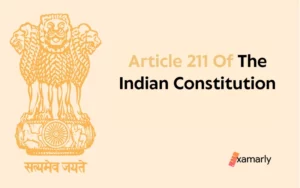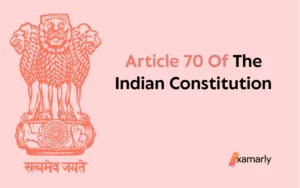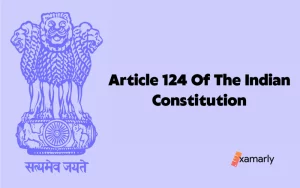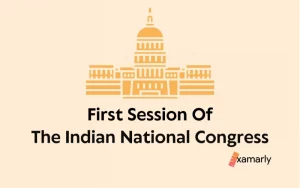The abolition of titles is a constitutional provision that prohibits innate nobility titles and is outlined in Article 18 of the Indian Constitution. Its purpose is to ensure unity and peace in society. In medieval India, conferring titles was a common practice. According to the article, the practice violates the equality of opportunity guaranteed by article 14 of the constitution.
Abolition Of Titles
- The abolition of titles in the Indian constitution is a result of the nationalism of nationalists, who wished to uphold the goals of democracy. However, the article itself does not guarantee fundamental rights. Rather, it states that the abolition of titles is an extension of the right to equality. This means that giving titles is not permitted, as it violates article 14 which guarantees equality.
- The abolition of titles is an excellent step toward fostering social equality. The concept of a title creates an aura of superiority, and it can hinder strong relationships between people. Article 18 of the Indian constitution aims to bridge this gap and reintroduce social harmony.
- The article abolishes all forms of titles by state. It also prohibits the grant of foreign titles to Indian citizens and to those holding profit offices in the country. Foreign presents and emoluments are also prohibited under the article.
Article 18 Of The Indian Constitution
Part III of the Indian Constitution mentions the prohibition of titles. The special provision for the “Abolition of Titles” is covered under Article 18 of the Indian Constitution.
Article 18 is applicable to foreign nationals as well.
Constitutional Provisions
Article 18 consists of 4 clauses as follows:
- The State shall not bestow any titles that aren’t related to academic or military achievements. In other words, all titles are forbidden by Article 18 (1). With the exception of educational and professional titles like Paramveer and Doctor, it prohibits the government from conferring titles on anybody, a citizen or non-citizen. A university may therefore award a title or honor to a talented person.
- The second clause and the following clauses apply to citizens. It prohibits an Indian citizen from assuming any titles from another country.
- It prohibits anyone who occupies an office of profit or trust post but is not an Indian citizen from assuming a title from another country without the President’s permission.
- Nobody in an office of profit or trust under the State is allowed to receive a gift, emolument, or post of any kind from or under a foreign State without the President’s consent, according to Article 18(4).
Constituent Assembly Debate
On December 1st, 1948, Draft Article 12 (Article 18) was discussed. It did away with the awarding and recognizing of titles.
Titles associated with academic distinction and military distinction are excluded from the purview of the Draft Article, according to an amendment put forth by a member of the Drafting Committee. Without discussion, the Assembly approved this.
To make it clear that the State will not recognize any titles bestowed by a foreign State, another member requested to change clause (2).
In its current form, he claimed, the Draft Article simply forbade an Indian citizen from taking a title but did not forbid the State from recognizing it. He also emphasized that no punishment or repercussions were set forth for the same.
One of the participants argued that anyone adopting such a title had to be seen as having given up their Indian citizenship.
The Chairman of the Drafting Committee stated that Parliament might impose a penalty for this behavior using its residuary power. The Assembly rejected the amendment.
On December 1st,1948, the Draft Article as revised was approved.
Purpose Of Abolition Of Titles
- “ Non-acceptance of titles may be a condition of continuing citizenship; it is not a privilege; rather, it is a demand put on the individual who, if he wants to remain a citizen of this country, must comply with specific requirements.”
- “One of the requirements is that he must not accept a title; if he does, Parliament may be able to decide by legislation what should be done to those who breach the text’s restrictions.” One of the consequences could be that he loses his right to citizenship.”
Explanation:
Maintaining social equality is the goal of eliminating the title, and maintaining equality is the goal of avoiding harmful assumptions. If people are granted titles, this will cause fear among the general public and prevent the development of solid interpersonal relationships.
Social harmony and coherence would be compromised. To maintain the consensus of democracy’s objectives, the nationalists agreed to abolish titles.
Despite being referred to in Part 3 of the Indian Constitution as extending the right to equality, it makes no provisions for fundamental rights.
The equality guarantee outlined in article 14’s equality principle is violated by the grant of titles.
Designations like Zamindar, Rai Bahadur, Taluqdar, Sawai, Rai Sahab, and others were widely used in both ancient and British India.
According to Article 18 of the Constitution, all of these titles were eliminated. Only hereditary titles of nobility are forbidden by Article 18.
Democracy shouldn’t produce triumphs and titles.
In the creation of a society that seeks to achieve political, social, and economic equality and so wants to become really democratic, there is no possibility for a select few to hold titles and thereby foster artificial distinctions among members of an analogous community.
Significance Of Abolition Of Titles
- Titles distinguish a person’s rank by projecting inferiority complexes onto other people. As a result, the constituent assembly crafted this article, which includes four sections, and decided to do away with such disparity.
- It would jeopardize the peace and cohesion of the current society. To uphold the goal of a democratic republic, the nationalists firmly voted to abolish titles.
- In a democratic government, honors, and titles shouldn’t be established. This is part of the growth of a country that intends to attain political, cultural, and economic fairness as well as true democracy. There seems to be no place for a small group of persons to hold titles that could create unjust differences among the members of a community of equals.
- When people are given titles, they will raise issues that will make it difficult to build positive interpersonal interactions.
Difference Between Awards And Titles
- Those who pleased Britishers with their administrative prowess during British authority were given the titles. Awards are given out for outstanding public service, as well as for contributions to the advancement of the arts, sciences, and literature.
- Prior to independence, British colonizers conferred these titles on distinct specific populations in an effort to seed division and disunity among the populace. However, awards are given based only on the work performed by the recipient without discrimination based on race, religion, caste, or gender.
- The rewards are not prohibited, but they cannot be prefixed or suffixed. The titles do not contain all awards given for exceptional work in the academic field.
- The Bharat Ratna, Padma Vibhushan, Padma Bhushan, and Padma Shri are four awards given by the Indian government for exceptional service in any field, including public service. They were established in 1954.
- Acharya Kriplani fought vehemently against the awarding of such a decoration, which the Janta administration removed in 1977 before being reinstated by the Congress administration in 1980.
Landmark Judgement
Indira Jaising vs Supreme court Of India
- A lawsuit was filed against the use of the word “senior advocate” before the names of the attorneys in the case of Indira Jaising v. Supreme Court of India (2017).
- The Indian Constitution’s Article 18 was not violated. According to the Supreme Court, this is not the title but rather a delineation.
- This has been laid out in Section 16 of the Advocates Act of 1961.
- According to Section 16(2) of the 1961 Advocates Act, an advocate may be designated as a senior advocate if the Supreme Court or the High Court determines that he demonstrates the appropriate knowledge, competence, and comprehension of the law. In each of these cases, the Court issued instructions and created the “Committee for Senior Advocate Designation,” a formal organization.
Balaji Raghavan vs Union Of India 1996
- In the Balaji Raghavan v. Union of India decision from 1995, the petitioners asked the court to forbid the Indian government from presenting national accolades like the Bharat Ratna, Padma Vibhushan, Padma Bhushan, and Padma Shri. They also challenged the validity of national awards like the Bharat Ratna.
- They contend that the National Awards violate Article 18 of the Indian Constitution because they fall under the purview of titles.
- It was claimed that these awards were being misused excessively, that the intent behind their awarding had been compromised, and that those who weren’t deserving of them were receiving them.
- Under Article 226 of the Indian Constitution, Balaji Raghavan petitioned the High Court of Madras for a writ of mandamus. It was to enjoin the Indian government from presenting any of the prestigious awards.
- The Supreme Court concluded that the idea of equality doesn’t actually demand that persons who have contributed greatly to the country and to greatness be denied recognition.
- According to Article 51A(j) of the Indian Constitution, every individual is urged to strive for excellence in all areas of interpersonal and group interaction so that the country can continue to rise to new heights of endeavor and achievement.
For Further Readings:
Conclusion
Awards-giving creates inequity between winners and common people, but it also encourages unhealthy competitiveness among winners.
Therefore, it’s critical to recognize individuals’ contributions and aid in their empowerment.
The same reason that Article 18(1) was passed was to put an end to people’s corrupt and immoral behavior, which leads them to try to court favor with those in positions of authority in order to gain some sort of advantage.
Awards recognize a variety of qualities, including talent, difficulty, and effort, in addition to accomplishment. It is legal and does not infringe upon Article 14 of the Indian Constitution to provide rewards to citizens.
If honor is abused, the defaulter will lose their award and may also face other consequences. Clarification of the rationale for title awards is necessary.
FAQs
What Is The Need For The Elimination Of Titles In India?
The abolition of titles is needed to help stop the social inequality in India.
What Was The Need For Introducing Article 18?
The article in the Indian constitution refers to a part of Part III that covers the “Abolition of Titles.” In Article 18, nations are not allowed to grant titles to Indians. In case of a violation, the Parliament can pass laws to deal with the situation. The goal of eliminating titles is to promote social equality and avoid making assumptions about people. The existence of titles can cause fear in the public and prevent the development of healthy interpersonal relationships.
Is Bharat Ratna A Title Under Article 18 Of The Indian Constitution?
Article 18 does not list “Bharat Ratna” as a title. Article 18’s clause 1 addresses exclusions like titles from the military or academia. Citizens may receive honors such as the Padma Vibhushan, Padma Sri, and others for their remarkable and meritorious contributions to the arts, literature, sciences, and other sectors.
Which Article States The Abolition Of Titles?
Article 18 abolished the titles. Also, the article prohibits every state to confer any titles on anybody.


